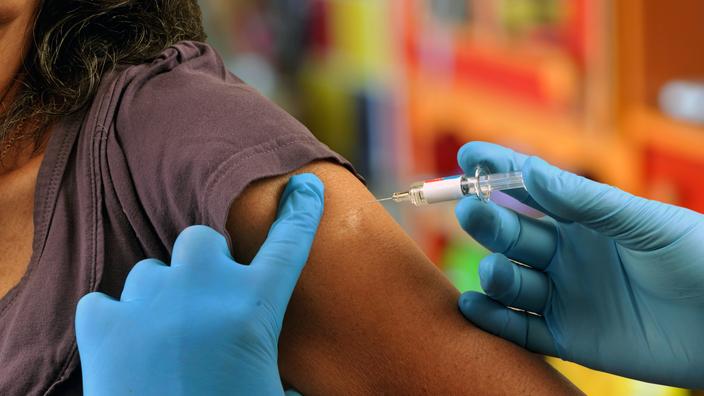Cautious optimism.
This is the content of the New World Economic Outlook of the Organization for Economic Co-operation and Development.
Laurence Boone, the chief economist says she is "
happy
" to present a more "
optimistic
"
panorama
thanks to the imminent arrival, faster than expected, of vaccines.
Not enough to claim victory, given the great uncertainty, the persistence of restrictive measures, and the many risks weighing on the global economy.
Read also: Jean-Pierre Robin: "Epidemic, recession, terrorism, the French are wiping out a perfect storm"
Thus, beyond a central scenario, the OECD draws up two trajectories of global wealth growth by 2022, with a gap of $ 7 trillion.
Depending on the speed of deployment of the vaccine, the maintenance of aid plans, the renewed confidence of households and businesses, their capacity to consume and invest.
After falling 4.2% this year, global GDP is expected to rebound by the same magnitude next year and 3.7% in 2022. China, the first epicenter of the pandemic in early 2020, has successfully brought the virus under control faster.
Thus, its economy is the only one among the large countries to escape the recession (+ 1.8% expected this year).
Read also: Covid-19: how our European neighbors are preparing for the arrival of the vaccine
In the developed economies, Great Britain and Spain, will experience the biggest falls this year, followed by France and Italy.
Germany is doing better, as are Japan and the United States.
As for emerging countries, India, Mexico and South Africa recorded the worst performances.
Strong heterogeneity of countries
The International Organization underlines the very strong heterogeneity of countries, depending on the extent of the pandemic, the various measures put in place to deal with it, between containment and support plans.
In emerging and developing countries, a large part of the populations who live from the informal sector, in restaurants, tourism and small businesses, have suffered particularly.
In her presentation, Laurence Boone points to the engines that could accelerate the recovery and conversely the many brakes.
Given the sharp rise in the savings rate, particularly in the United States, consumption could be more dynamic.
The risks mainly come from the deterioration of the labor markets with an expected surge in bankruptcies and unemployment.
SMEs are particularly vulnerable and corporate debt is reaching worrying levels, says the OECD.
This risk is more significant in emerging countries.
More serious, warns the chief economist, this crisis increases inequalities and risks leaving lasting scars.
The concern relates to young people, low incomes, the delay in educating children from disadvantaged families.
The message to governments is to strengthen health policies and maintain aid policies, made possible by the very favorable financial conditions, by targeting the most vulnerable populations.
Thanks to the action of the central banks, the cost of public debts and interest charges have fallen sharply.
SEE ALSO -
Covid-19: Air France is preparing “99 long-haul planes” to deliver vaccines

